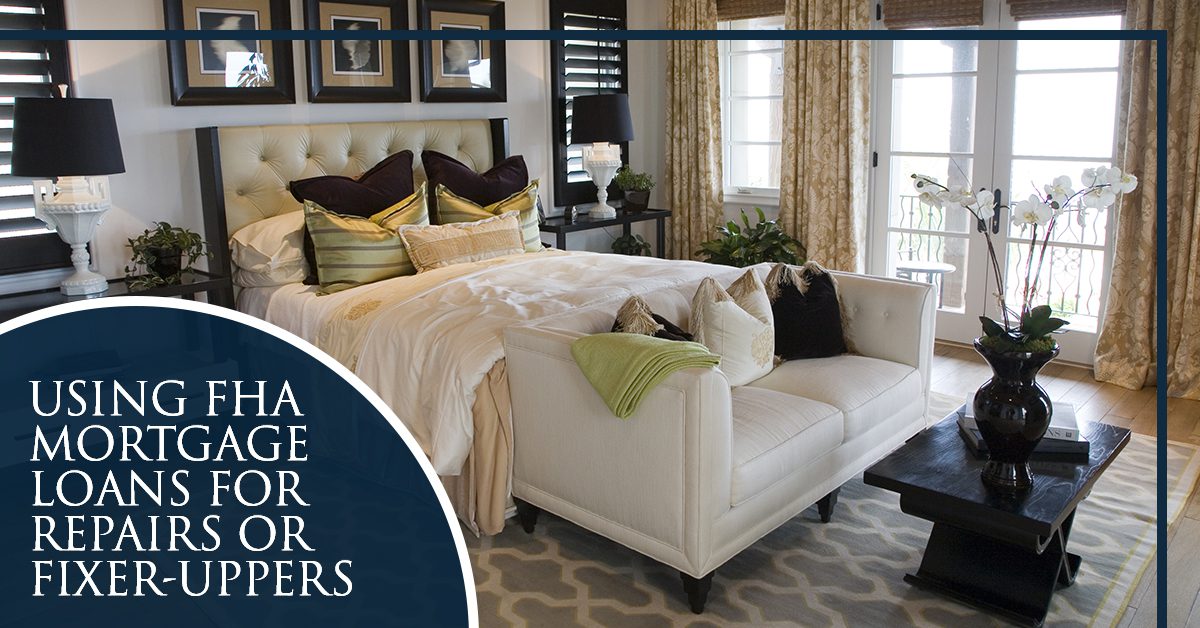How many times have you watched those home renovation shows and seen an absolute dump get transformed into a chic, palatial residence? The idea of the fixer-upper home is one that has grown massively in popularity during the last decade. The reason behind this surge is a combination of those renovation shows on TV in conjunction with an increasing scarcity of new or well-maintained homes in desirable areas. But, as you may imagine, buying a fixer-upper that needs some major work done comes with a few extra considerations that a new home doesn’t necessarily have. In particular, financing both the home purchase and the renovations can be a big hassle. If you’re thinking about buying a fixer-upper, here are a few things to keep in mind as you dig into the process.
Benefits Of Fixer-Uppers
First and foremost, it’s very important to consider if you really want to buy a fixer-upper. TV shows can make the process look incredibly idyllic, but the reality is anything but. You’ll need to decide whether to live in the home while renovating it, or you’ll need to find somewhere to stay while the house gets its makeover. Second, you’ll need to decide who will do the work. Some major renovations will require a licensed contractor and permits, but some work can be done with some elbow grease and a few self-help videos — at least, they can be if you’re a handy sort of person. If you have trouble hanging artwork straight, you might want to leave the work to the professionals. Overall, renovating a house is typically a major undertaking, so it’s wise to make sure the home has been thoroughly inspected and you have a good idea about all the work it will need. Of course, as those home renovation shows prove, surprises pop up all the time, so you’ll need to expect the unexpected too.
That being said, there are a lot of potential benefits to renovating a run-down house. The biggest perk is that you’ll be able to make changes according to your preferences. You can truly make the house your own, in more ways than one. Do you want to open up the living room? As long as you don’t take out a load-bearing wall, it’s a lot easier to demolish or move walls when you’re renovating a home. In addition, renovating a run-down home often means you can buy a home in a neighborhood you would otherwise not be able to afford. And third, fixing up that poor, shabby house is a great way to add equity to your home almost immediately. When you go to sell, all that hard work will come in handy.
Financing A Fixer-Upper
Buying a fixer-upper isn’t quite the same as applying for a loan on a ready to move-in home. This is specifically because, unless you have thousands and thousands saved up on top of what you’ll use for a down payment, you’ll need to include the renovation costs into the full amount of your mortgage. And, generally, this means you’ll need to find a specialty loan in order to make your renovation dreams a reality. FHA mortgage loans are one of the most common options for those looking to buy a home and take out a loan for the renovation costs.
Specifically, you’ll want to talk to lenders about an FHA 203(k). This loan is designed specifically to encourage home buyers to buy those run-down houses and give them the makeover they need to be livable again. After all, doing so adds another house to the market, but it also helps improve the value of the neighborhood as a whole. Basically, the economic benefits extend to the surrounding community, not just the buyer. So, in order to provide the financial backing, a buffer for the cost of the renovations is included in the loan amount. At closing, the lender will pay out the cost of the house itself to the seller. The remaining amount goes into an escrow account that can be withdrawn from to fund the renovations. However, there are a few extra qualifications and requirements for this subset of FHA mortgage loans.
The Fine Print
First, the FHA 203(k) will only pay out up to whatever the limit in your area is, and that includes both loan and renovation costs. If you’re interested in a more costly home or expensive renovations, you will likely need to seek out a different renovation loan. The biggest benefit to this type of FHA mortgage loan is that it only requires a minimum of a 3.5 percent down payment. This way, you can put more of your savings toward closing costs and renovations or whatever else you so choose. The other benefit of FHA 203(k) loans is that they allow for do-it-yourself work to be done, and the cost of supplies to come from the loan funding. However, this is only applicable for some loans, so be sure you check with your lender before you start taking a sledgehammer to the walls.
FHA mortgage loans can be an excellent option if you’re looking to fix up a house and make it your home. For more specific answers about the limits and qualifications in your area, work with an experienced lender or broker. Contact the mortgage financing team at Patriot Home Mortgage to learn more about FHA mortgage loans and get started on your next project today!


